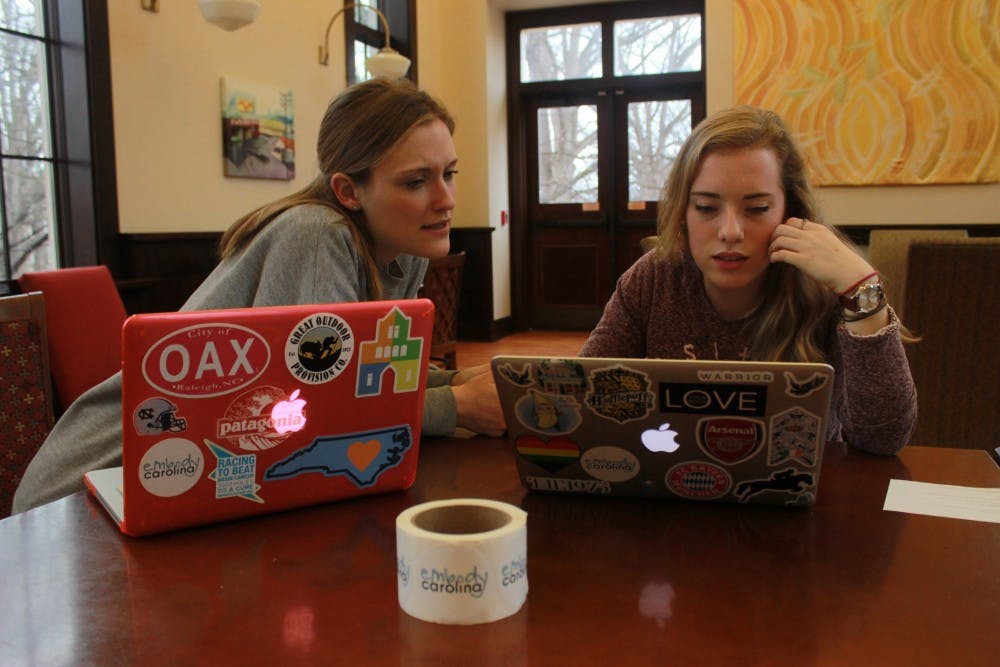Junior Regan Buchanan said she struggled with disordered eating in high school, but it didn’t progress into a full-blown eating disorder until her first year at UNC.
“There’s a false narrative around college — that you’re supposed to get here and it’s supposed to be the best four years of your life,” Buchanan said. “I think social media really contributes to that, as well. Everyone is trying to put on this fake face, but in reality, I think we all were scared shitless when we first came to school.”
UNC graduate Colleen Daly co-founded Embody Carolina, a student organization focused on training allies to support people with eating disorders. This week is National Eating Disorders Awareness Week. Daly said her eating disorder began when she took lifetime fitness as a first-year.
“The amount that people talk about the freshman 15 as the worst possible thing that could happen to you in your first year of college, it’s horrible,” Daly said. “And then there’s added stress — new people, new social structures. Lots of homework, school stress, social stress, and that just spirals out of control. And, it was my first year of college. Who would know my eating patterns?”
Daly isn’t alone. Buchanan said her feelings of isolation on UNC’s campus created a situation where her disorder worsened.
“I think that mental disorders, eating disorders — they thrive on loneliness,” she said. “I just always thought people would think I was a freak, I was just petrified of anyone knowing. And I think that actually contributes to feeling super lonely, because you feel inside that no one really knows who you really are as a person.”
Antonia Hartley, clinical nutrition specialist for Campus Health Services, said other employees of Campus Health are trained to screen for symptoms and signs of eating disorders in clients, and they refer students to her if they encounter someone who needs help.
She said if a student comes to her, the first thing she does is get them set up with a medical doctor and a counselor — but Counseling and Psychological Services isn’t equipped to help students with eating disorders.




